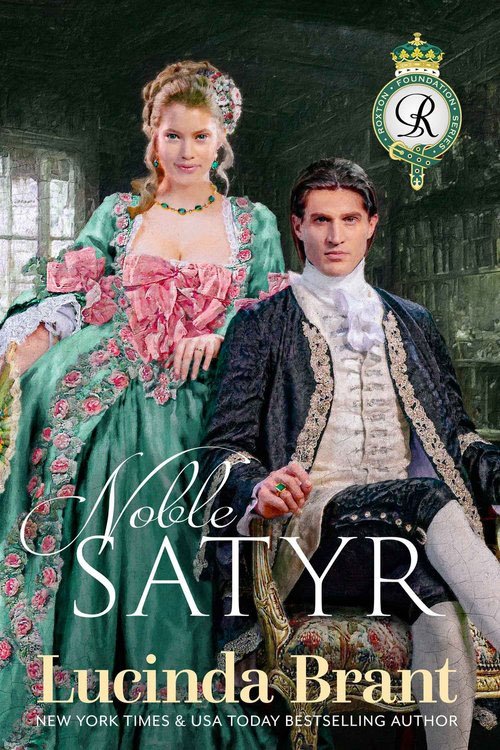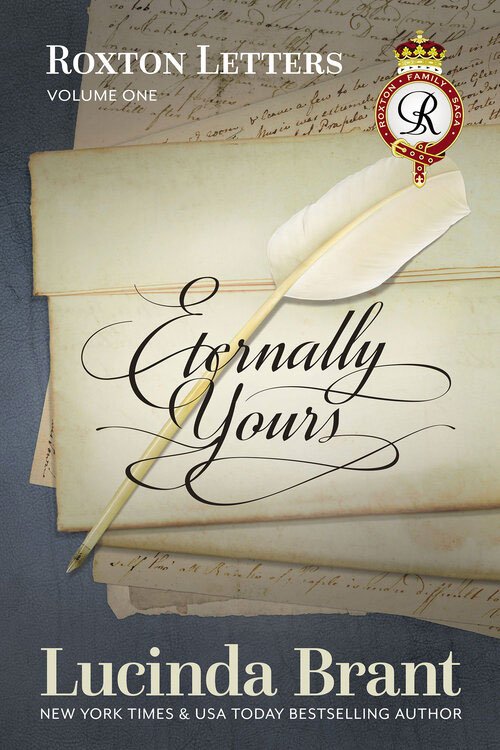An Eighteenth Century Love Letter
Originally posted at indieBRAG
The eighteenth century saw an explosion of letter writing on a scale never seen in previous centuries, and similar to what we are experiencing today with the flood of digital communication. Everyone wished to express an opinion on all manner of topics, from the current political climate, to the war in the American Colonies, crime rates, and what the fashionable were wearing in town. Letters were the main form of communication and none mattered more than those professing love. Receiving a physical love letter was something to cherish, as it is today, to be carefully read and re-read and kept as a treasured object.
In Noble Satyr (Roxton Foundation Series Book One), the Duke of Roxton leaves his bride a love letter on her dressing table, the morning after their wedding night. Roxton is a nobleman who chooses his words carefully, and thus is economical in his conversations, both spoken and written. His title, pre-eminent position in society, and arrogance mean one word or a look from him is sufficient to convey his wants and needs, most of which are often anticipated.
Thus his love letter is all the more significant, and serves a dual purpose—of reassuring his bride of his deep love and devotion, and as a physical token of his enduring love for her. He is confident that Antonia believes in the sincerity of his feelings, and thus writing a letter is somewhat superfluous. But Roxton also knows that for Antonia words hold far more significance and are more precious to her than any jewel or trinket.
Here I share his love letter from Renard, Duke of Roxton, to Antonia, Duchess of Roxton, left on Antonia’s dressing table the morning after the wedding night.
Antonia, I love you. Three simple little words, and yet never uttered or inscribed in ink by me to another living soul, only to you. I will never love another as I love you. I will never cherish another as I cherish you. I will always love only you.
This is the happiest day of my life. For it is the first day of the rest of my life, with you. Not yesterday when we were married, with witnesses in attendance, up before parson and reciting what others have done before us and will do after us. Me nervous, and you serene and steadfast. I could not wait for the ceremony to be over with, and our guests to leave. Yesterday was still the getting there, but today, now, here, just the two of us, today I am your husband and you are my wife. It still leaves me dazed to write such words, for I truly believed I would never marry. And then into my life you stepped, or should I say twirled, in your whirlwind of silks and smiles…
You sleep peacefully in our bed, while I cannot sleep at all. I fear falling asleep and waking to find you gone, of finding myself alone. I am sure this apprehension will ease with every night we spend together as a married couple, until one night I will fall asleep with you in my arms, and wake to you still snuggled in my embrace, and think it the most natural state in all the world. But do not ever think for a moment I will take you or our marriage for granted. It is precious; henceforth I pledge to nurture our union for the rest of my days.
You told me that once we shared a bed you found you could no longer sleep without me. I can no longer live without you. For with you I am truly who I am meant to be. I wonder now if I have been walking about as one dead, or as a specter, with sight, hearing and touch, but without the ability to feel. It is as if I have floated through life without experiencing any of it. When did I become like this? How have I walked the halls of kings in such a paralyzed state: Eating without tasting, looking without seeing, touching without feeling. And all the time with a heart that was disdainful, and a soul that was wasted. Until you.
I have always considered my birthright a burden to be endured, and in the most arrogant of ways. I am well aware of my preeminent place in this world, and I own to being conceited and vain. I have often taken without a thought to the consequences to others, and without giving freely in return. I am by nature wary and reserved. All this you know and accept, and have never been in awe. Nor have you ever doubted my right to be as I am. You love me unconditionally, and for that alone I am blessed. You have given me a wondrous gift.
You have always been prepared to see the good in others, first and foremost, and only want the best for them. I marvel at how you find joy in living each day to the full. To look on you, to be with you, to experience life in your company, is to be complete.
For you alone I strive to be a better man; to live a better life; to know its joys and its pleasures; to never disappoint you; and never will I squander a single moment of the life that is left to me—with you.
With this letter I enclose some lines of verse, with apologies to the seventeenth century poetess for taking liberties with her prose.
You have my whole heart, my body, and my soul.
I am eternally yours,
Renard
Oft I’ve conjured thee to appear
By youth, by love, by all their powers,
Have searched and sought thee everywhere,
In silent groves, in lonely bowers:
On flowery beds where lovers wishing lie,
In sheltering woods where sighing maids
To their assigning shepherds hie,
And hide their blushes in the gloom of shades.
Yet there, even there, though youth assailed,
Where beauty prostrate lay and fortune wooed,
My heart, insensible, to neither bowed.
In courts I sought thee then, thy proper sphere,
But thou in crowds were stifled there,
Interest did all the loving business do,
Invite the lovers and maids too.
Thy mighty force through every part,
What god, or human power did thee create
In me, till now, unfacile heart?
Yes, yes, my love, I have found thee now;
And found to whom thou dost thy being owe,
’Tis thou the blushes dost impart,
’Tis thou that tremblest in my heart.
I faint, I die with pleasing pain,
My words intruding, sighing break
When e’er I touch thy beauteous form,
When e’er I gaze, when e’er I speak.
Thy conscious fire is mingled with my love,
As in the sanctified abodes
Forevermore…
*~ *~ *~
Read more letters from the Roxton Family Saga in Eternally Yours
Read the Duke of Roxton and Antonia’s love story—which includes the love letter and other letters relevant to their story—in the multi-awarded novel Noble Satyr (Roxton Foundation Series Book One)




